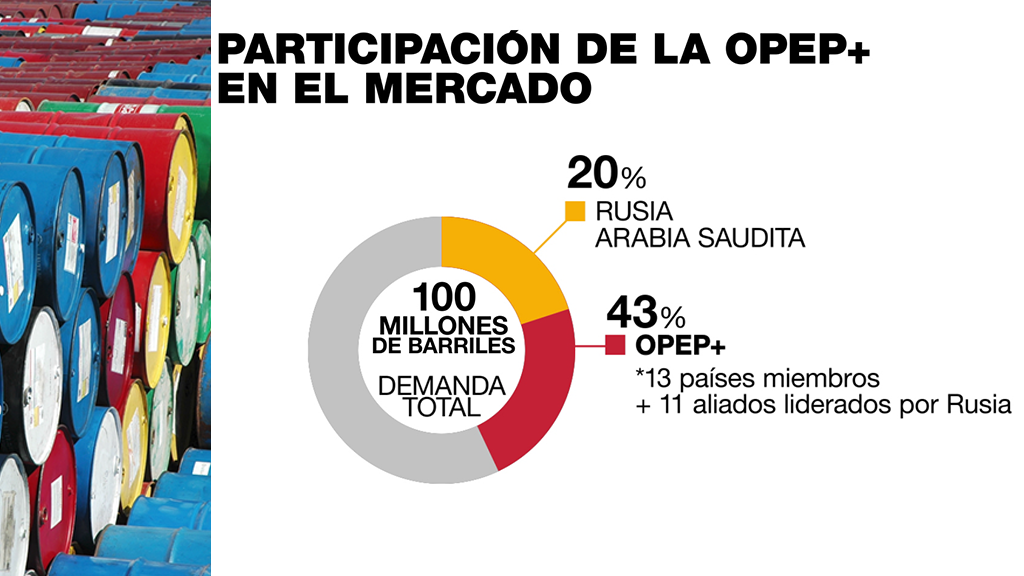First modification:
This week, the club of major oil exporting countries decided that as of November it will reduce its crude supply, arguing that it is looking for stability in the market. But the United States believes it is a favor from Saudi Arabia to Russia. We explain it.
Just over four out of every ten barrels of oil the planet consumes each day comes from the Organization of the Petroleum Exporting Countries (OPEC) and its allies, led by Russia.
Hence the importance of the announcement on Wednesday, October 5, 2022, according to which this club will reduce its oil supply by two million barrels per day starting in November, the largest cut since the pandemic began.
That amount represents about two percent of a daily consumption estimated at about 100 million barrels. And the law of supply and demand suggests that this can only mean one thing: higher prices are on the way for crude oil and, consequently, for fuels.

The announcement has not only sent oil prices skyrocketing to five-week highs, but also the fury of the United States. Why?
USA: “OPEC+ makes short-sighted decisions”
Founded in 1960, OPEC is made up of 13 members, while it becomes OPEC+ when its 11 allies are added. Nevertheless, two countries are the ones that have the singing voice in the decisions: Saudi Arabia, leader of the group, and Russia, which heads the partners.
“The one who really controls the production and decision-making capacity is Saudi Arabia, which is the one with excess capacity that can easily go up and down. The others support each other, make adjustments, but they really do very little,” Julio César Vera, analyst and president of the XUA Energy foundation, explained to France 24.
The United States, as one of the largest consumers in the world, closely follows the bloc’s decisions and in recent months has been pressing so that, instead of closing the tap, it opens it more so that fuel prices fall and thus curb rampant inflation.
OPEC’s decision to cutback on production is a blatant attempt to increase gas prices at the pump that cannot stand. We must end OPEC’s illegal price-fixing cartel, eliminate military assistance to Saudi Arabia, and move aggressively to renewable energy.
— Bernie Sanders (@SenSanders) October 5, 2022
At its meeting this week, OPEC+ turned a deaf ear to the pleas from the White House and made it clear that it must respond to its economic and commercial interests and not those of the West.
Haitham al Ghais, Secretary General of OPEC, explained that “we are not endangering the energy markets. We are providing security and stability to the markets”, adding that “everything has a price. Energy security also has a price”.
A day after the announcements, President Joe Biden declared himself “disappointed”, called the measure “short-sighted” and joined voices with some of his main advisers to warn that they are “analyzing all options” regarding their relationship with Riyadh. .
It is not the first time that OPEC+ has shown its might and turned its back on the West: in March this year, the United Arab Emirates’ energy minister said that oil producers who felt marginalized at the 2021 COP26 climate conference , are now being treated like superheroes after the outbreak of the war in Ukraine sent prices skyrocketing. “And that’s not how it works,” he stressed at the time.
With EFE, Reuters and AP













